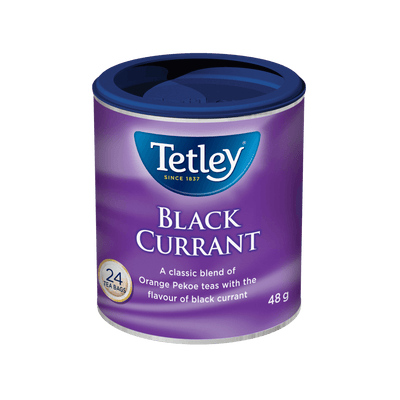The Perfect Brew
Have you always wondered how to make a perfect cup of tea? Here are some of our tips and tricks for the perfect cup every time.

Making the Perfect Brew
We know each person has their favourite way of preparing a cup of tea and don’t let us stop you! However, there is a little room for error when it comes to brewing, so our Tea Masters want to share a few pointers to help your tea taste its very best.
Water
When making tea, the water should only be boiled once, and if possible, have a low mineral content.
If water is boiled more than once, the oxygen levels are reduced which affects the taste. Water with low mineral content allows tea notes (i.e., the flavour) to come through easily resulting in a great tasting cup of tea.
Temperature
For black tea, once boiled, you should pour the water as soon as possible. When brewed close to the boiling point, black tea tastes better due to its rich and robust flavour which immediately kicks in.
For green tea, it’s important not to use boiling water. Instead, the water should be around 80°C otherwise the delicate green tea leaves will burn, creating a bitter taste.
Brew Time
Patience is important when using tea bags. (We know, we know. You just want to drink your tea already!) Don’t poke and prod the tea bag; let the process happen naturally and slowly.
Here are the recommended brew times depending on the type of tea you’re making:
- Black Tea - Brew for 2-3 minutes
- Green Tea - Brew for 1-2 minutes
- Fruit/Herbal Infusions & Rooibos Tea - Brew for 3-5 minutes
Cooling
You should allow your tea to cool for 2-3 minutes after removing the tea bags. This is because once the temperature of the water decreases, the flavours start to develop, and the result is a better tasting tea.
Milk
Do you add milk to your tea before or after you add hot water? This is a bit of a controversial question among tea fans. For us, the answer is simple – after. Adding the milk after ensures the water is the right temperature for brewing the tea.
Sweetener
If you want to sweeten your tea, we recommended using white sugar, brown sugar, or honey.
And there you have it, a perfect cup of tea!

Tetley Tea Masters
Most people don't realize that blending tea is a fine art like blending champagne or whiskey. Our team of blenders have over 1,000 years of combined tea experience, so they know a think or two about blending!
We've sourced only the highest quality teas for over 18- years. Our professional tea tasters (known as Tetley Tea Masters), are based in 7 countries and provide tea blending expertise that is second to none.
Why Is a Tea Taster So Important?
Most of the tea we drink is a blend that contains a variety of teas from different sources. Often people believe the best tea is “single origin,” but this is not necessarily true.
The taste of tea leaves in any specific origin—or even a field within a region—change with the climate and time of year. To deliver consistent quality and taste, our tea tasters and blenders mix teas from various regions. This is the only way to deliver the same delicious taste, cup after cup.
Fun fact: Every blend is tasted at least 8 times before receiving the Tetley quality seal of approval.
Since no tea crop is ever the same, tea tasting is a continuous learning process which is why it takes more than five years to become a qualified Tetley Tea Master. Part of the Tea Masters training is learning our unique tea tasting language called “Uhuru.” This language allows tea tasters and blenders to describe and grade the quality of teas.
Here are some of the tea elements examined using the Uhuru language:
- Sparkle – purity of the colour
- Clarity – record the clarity of the tea brewed without milk
- Body – the weight of the tea in the mouth
- Zing – overall liveliness of the tea on the palate
In addition to black, green, and red (also known as rooibos) teas, our Tetley Tea Masters also created a wide range of herbal teas. Browse our full tea collection here.
Tea Storage Tip:
Once removed from the box, tea bags are susceptible to odours and can become stale. To prevent this, place the tea bags in an airtight container after opening and store in a cool, dry place.
We don’t recommend storing tea in your refrigerator or freezer as condensation might occur which affects the flavour of the tea.









